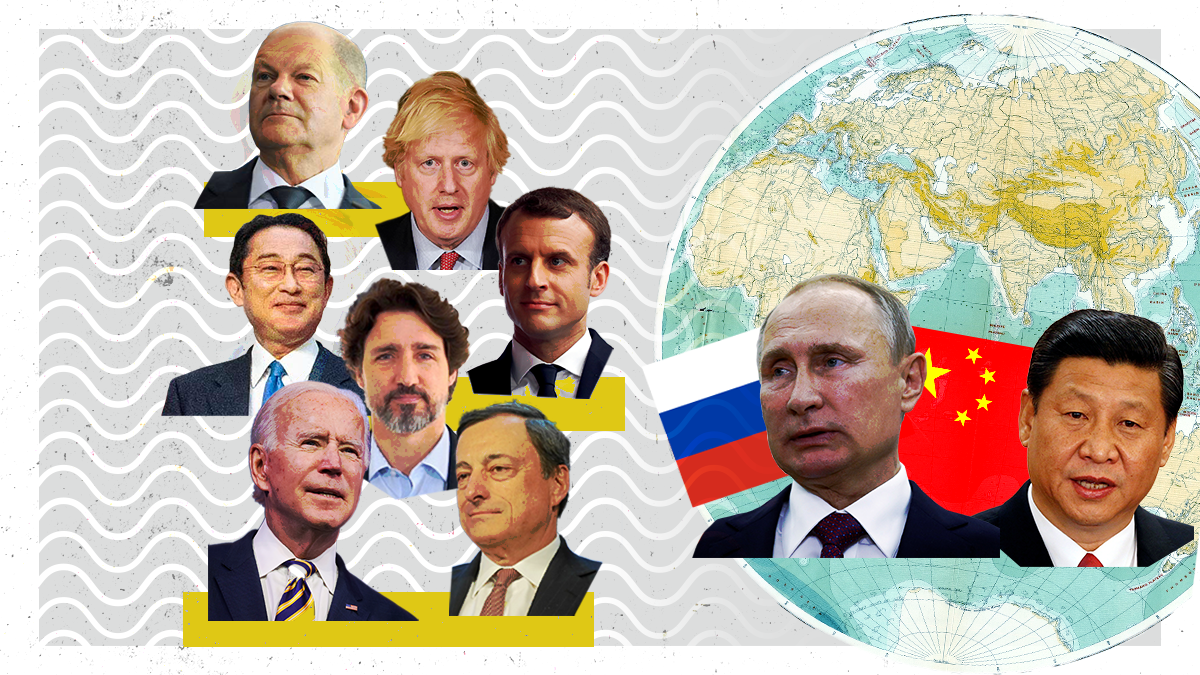What We're Watching: G7 summit, SCOTUS gun-rights ruling, Ramaphosa's bad optics
G7 meets as global fault lines deepen
Leaders of the world’s leading industrialized democracies — Canada, France, Germany, Italy, Japan, the UK, and the US — will gather in Bavaria this weekend to discuss ways to shore up support for Ukraine without slipping into a direct conflict between NATO and Russia. China’s “coercive economic practices” will also be on the agenda, according to US officials. With global geopolitical fault lines opening up as a result of Russia’s war in Ukraine, one key G7 guest to watch is Indian Prime Minister Narendra Modi, who will attend just two days after taking part in a pivotal summit of the BRICS, where B(razil), I(India), C(hina) and S(outh Africa) all looked for ways to deepen ties with R(ussia.)
SCOTUS wades into another US culture war
The legislative and judicial branches are out of sync in America. On Thursday night, the Senate passed (lukewarm) gun-safety legislation following the Texas school shooting, hours after the Supreme Court ruled that Americans have a constitutional right to carry firearms in public. In its first major gun-rights decision in years, the court overturned New York’s requirement for people to demonstrate a need for a gun to obtain a concealed-carry license. Very soon, almost anyone will be allowed to carry guns on the streets of America’s biggest cities — which also tend to have the toughest anti-gun laws. Still, the decision is at odds with the bipartisan effort in Congress to make at least some progress on the divisive issue of gun-safety legislation. It also kicks off a series of looming high-profile rulings before the court’s summer break — including the likelihood that the conservative majority will overturn Roe v. Wade, the landmark 1973 decision that legalized abortion in the US. Just months before November’s midterm elections, this is bound to have many questioning whether the court still stays above politics.
South Africa’s Ramaphosa — “ought he to have known” about graft?
A bombshell three years in the making dropped this week when an independent inquiry charged with investigating suspected government corruption under former President Jacob Zuma reported findings damning current President Cyril Ramaphosa. Zuma, the former African National Congress heavyweight, still faces fraud charges on allegations that he pillaged state resources and colluded with the Indian-born Gupta brothers, recently arrested in Dubai, to ravage state coffers. Ramaphosa denied knowing about any graft, but the report suggests that he – as Zuma’s deputy from 2014-2018 – should have known what was going on and tackled serious allegations. While Ramaphosa isn’t accused of wrongdoing, the optics are bad for a politician who has sought to establish himself as an anti-corruption warrior. This throws another spanner in the works for the head of state as he tries to stave off bitter internal party divisions and enhance the ANC’s poor image ahead of 2024 elections in which the party is at risk of losing its ruling majority.
